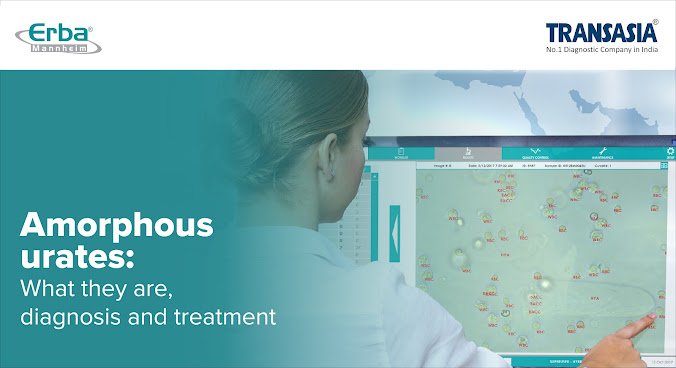Capturing the value of good quality in medical devices
While we harp on making diagnostics in India accessible and affordable, it is essential to do so without compromising on quality...
While most of the Western world and Asia have long had regulations in place, to ensure quality standards, India has started devising its own regulatory systems for medical devices only in the recent past. With the introduction of Medical Device Rule 2017, the government is set to ensure that all medical devices, henceforth, both produced and imported, will conform to high standards.
Further the recently introduced ICMED, India’s first indigenous quality assurance system for ‘Make in India’ medical devices, is aimed at enhancing patient safety, by providing product credentials to manufacturers. From the customer’s perspective, it will help in procurement of standardized products.
Making regulations a part of good business practice
Research shows that most organizations identify the primary role of Quality Assurance as compliance i.e. ensuring documentation and adherence to regulatory requirements with internal policies and procedures. The same holds true for the diagnostic industry. While it is necessary for manufacturers to focus on meeting regulatory requirements, it is also necessary to take into account, risk to patients due to inaccurate reporting, a result of sub-standard manufacturing devices. The true focus of QA thus, should be on ultimately improving the quality of lives.
From Compliance to Operational Excellence
Quality is a cross-functional responsibility and requires collaborative efforts from all stake-holders with a shift away from ‘inspect to control’, for error prevention at the very first point of generation.
A comprehensive QMS will have to take into account, several practices that correlate with good quality outcomes. These include, identifying Critical Quality Attributes (CQAs) and establishing error proofing mechanism to achieve more robust product and process controls. Manufacturers also need to develop mature quality systems which would entail supplier controls and corrective action/preventive action (CAPA) management to reduce quality cost. Implementing an analysis-driven quality culture across an organization is also critically important. Focusing on employee development will help strengthen the operational process and improve operational effectiveness..
Leading the way in offering the best quality
Being India’s leading In-vitro Diagnostics Company, we realize that customers look up to us to offer finest quality products. With a customer centric approach, we have developed our own QMS system that integrates personnel, systems and process control from early design stage to final installation of the instrument. It all starts with recognizing the customer expectations and then integrating it in our processes. Our aim is to simplify product complexity by streamlining design, optimizing the CQAs per product, and limiting the total number of components in the product.
Making our employees equally responsible of our quality management process helped us continually improve operation robustness and fix issues at their root cause. We periodically run a Kaizen program that rewards employees who address a problem in production, correct an error, or suggest a better way to do things that reduces waste or improves efficiency.
Our focus on continual improvement has helped us improve our processes in ways more than one:
- Innovation - This need not necessarily translate into a ‘Eureka’ moment. It is important to search for new, better ways that can make the process error –proof. Earlier the assembly pulley for one of our instruments could be mounted in both directions. This lead to manual errors and failure at the next assembly function. A small design change, made it easy for our team to identify the correct direction and thus 100% error free assembly.
- Risk assessment - While conducting a risk analysis for safety and environment is a good thing, at Transasia we have taken it a step further to expand the risk assessment process to cover all stages in a product lifecycle; from procurement, manufacturing, logistics, distribution and delivery. Changing the packaging material from a non eco-friendly to an eco-friendly one has not only helped us do our bit for the environment but also reduce the logistic costs by upto 20%.
- Standardization - It is important to look for ways to improvise certain processes that are repeatable. A small change in process can have considerable benefits. For example, though filtration of reagents is a very small step in the complete test run, however just improving the pore size of the filter, has helped us reduce the process time from 3 hrs to 45 minutes and bring down the costs/tests.
Additionally, structured systems are in place to identify, monitor, and improve supplier systems, thereby ensuring that supplier performance is improved.
This besides, preventive maintenance and renewal of manufacturing assets has helped us achieve sustainable production and quality performance. And this has been further validated by the fact that today Transasia Bio-Medicals. Pvt. Ltd. is the first In-vitro Diagnostics Company in India to receive the ICMED 13485 certification for its manufacturing facilities in India. All the facilities have been successfully audited for quality compliance for the design, development, manufacture, installation and service of In-vitro diagnostics analyzers and reagents used in diagnosis. The ICMED 13485 certification is an assurance of our focus on continuous improvement of our systems and processes, leading to greater customer satisfaction.
This besides, preventive maintenance and renewal of manufacturing assets has helped us achieve sustainable production and quality performance. And this has been further validated by the fact that today Transasia Bio-Medicals. Pvt. Ltd. is the first In-vitro Diagnostics Company in India to receive the ICMED 13485 certification for its manufacturing facilities in India. All the facilities have been successfully audited for quality compliance for the design, development, manufacture, installation and service of In-vitro diagnostics analyzers and reagents used in diagnosis. The ICMED 13485 certification is an assurance of our focus on continuous improvement of our systems and processes, leading to greater customer satisfaction.
Sources:
- https://www.slideshare.net/greenlightguru/fdas-case-for-quality-what-why-and-how-changing-the-regulatory-paradigm
- https://www.greenlight.guru/blog/quality-vs compliance
- https://www.financialexpress.com/industry/why-2017-is-a-landmark-year-for-the-medical-device-industry-in-india/550425/
- https://www.phaidoninternational.com/industryinsights/the-growing-importance-of-quality-in-the-medical-device-industry-87415204022
Authored by:
Mr. Manish Airan,
Associate Vice President- Quality,





Comments
Post a Comment